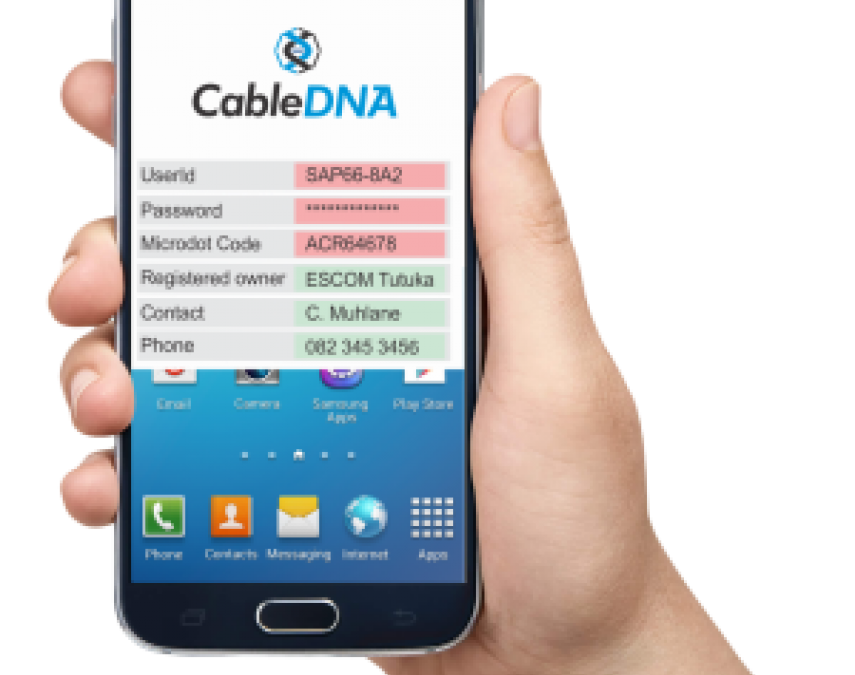South Africa is experiencing almost 200 instances of cable theft per day. The scourge costs the country an estimated R10 billion per year loss in lost productivity.
Although many cable thieves are apprehended, just seven percent of offenders are prosecuted because of the difficulty of proving cable ownership. That could be about to change, thanks to CableDNA, a South African company which has just unveiled what it says is a “revolutionary” cable identification method.
Electrical distribution cables, including already installed cables, are infused with a fluid that contains unique microscopic identifiers that can withstand being burnt, granulated and being melted into ingots.
“This approach will make cables treated by CableDNA too risky to steal, buy or sell because effective prosecution of thieves and illegal copper dealers will be inevitable,” the company said in a statement.
In addition, underground electrical cables older than 25 years develop small water-filled channels called “water trees” in the insulation which create a short circuit and cause cable failure. “The fluid used by CableDNA to carry the unique identifiers repairs the water trees and restores cable insulation properties to new levels, thereby effectively doubling underground electrical cable life,” the company said.

